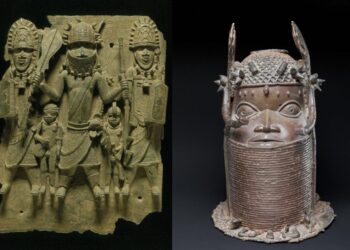The European Parliament has ratified the post-Brexit EU-UK trade deal – a key move to ensure that tariff-and quota-free trade continues.
The Trade and Co-operation Agreement (TCA) has been operating provisionally since January. MEPs voted in favour by 660 votes to 5, while 32 abstained.
The UK’s chief negotiator, Lord Frost, said the vote “brings certainty and allows us to focus on the future”.
Prime Minister Boris Johnson spoke of a “final step in a long journey”.
The trade deal provided “stability to our new relationship with the EU as vital trading partners, close allies and sovereign equals”, he said.
The result, announced on Wednesday after a vote late on Tuesday, was also welcomed by European Commission President Ursula von der Leyen.
However, the parliament’s Brexit Co-ordinator, Guy Verhofstadt, reacted by describing the deal as “a failure for both sides, but better than nothing”.
Lord Frost’s opposite number in the Brexit talks, Michel Barnier, was also less than flattering. “This is a divorce. It is a warning, Brexit. It’s a failure of the European Union and we have to learn lessons from it,” he told MEPs.
Brexit tensions remain, including a French threat of “reprisals” against the UK over new fishing restrictions. Northern Ireland trade is also a thorny issue.
Under a separate protocol, Northern Ireland remains de facto part of the EU’s single market, so goods arriving there from Britain have to undergo EU checks. Since Brexit there has been some disruption to that trade.
The TCA covers EU-UK trade in goods, but not services. The UK economy is dominated by services – sectors such as banking, insurance, advertising and legal advice.
The TCA has still resulted in more paperwork, extra costs and less trade between the two sides, since the UK left the EU.
Among the areas not covered by the deal are foreign policy, financial services and student exchanges.
Source: BBC














